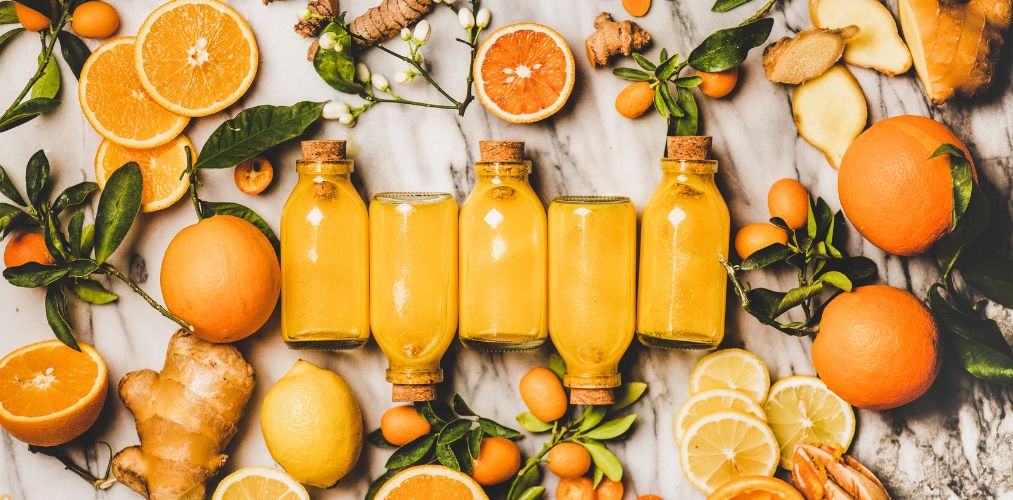7 Drinks to Avoid with UC for Better Symptom Control
Ulcerative colitis (UC) is a chronic inflammatory condition of the colon that causes symptoms such as abdominal pain, diarrhea and rectal bleeding. While many people focus on solid foods, the beverages you choose are just as important. Fluids travel quickly through your digestive tract and can carry irritants straight to inflamed tissues.
Some drinks increase gas, acidity or intestinal motility, all of which can worsen UC symptoms and trigger flare-ups. Avoiding certain beverages is a simple but effective step in your overall management plan. This article focuses on the drinks to avoid with UC to help you stay comfortable and reduce the risk of a flare.
Knowing which drinks to avoid with UC allows you to make smarter hydration choices every day. Below we explain how each beverage affects your condition and why steering clear of these seven drink categories can make a real difference in symptom control. Ready to learn which beverages are most likely to aggravate this condition? Read on for detailed information on the drinks to avoid with UC.
1. Carbonated Sodas
Carbonated sodas contain dissolved carbon dioxide that forms gas bubbles in your gut. This leads to bloating, cramping and discomfort. Many sodas are also highly acidic (pH 3–4), which can erode the protective mucus layer of the colon and provoke inflammation. Added sugars in sodas draw water into the intestines, increasing stool frequency and volume. If you’re dealing with UC, skip the fizz and opt for still drinks.
2. Caffeinated Drinks
Caffeine is a stimulant that speeds up intestinal contractions. For someone with UC, that means faster transit time and a higher chance of urgent diarrhea. Coffee, black tea, green tea, energy drinks and some sodas all contain varying levels of caffeine. Additionally, coffee’s natural acidity (pH 4–5) can further irritate the colon lining. During flares, try decaffeinated or herbal alternatives.
3. Alcoholic Beverages
Alcohol weakens the gut barrier by increasing intestinal permeability, often called "leaky gut." This allows bacteria and toxins to cross the intestinal wall and trigger inflammation. Beer and sparkling wines add extra gas, while distilled spirits mixed with sugary sodas boost osmotic load in your colon. Alcohol also disrupts beneficial gut bacteria, making it more difficult to control UC symptoms.
4. Dairy-Based Drinks
Many people with UC develop a secondary lactose intolerance, even without a prior history. Milk, milkshakes and creamy lattes contain lactose, which can ferment in the colon and produce gas, bloating and diarrhea. Full-fat dairy also delays gastric emptying, leading to more cramping. If you still crave dairy drinks, choose lactose-free milk, fortified nut milks or low-fat yogurt smoothies made with dairy substitutes.
5. Citrus Juices
Orange, grapefruit and other citrus juices are highly acidic. Their low pH can erode the mucus lining of the colon and stimulate excess fluid secretion, resulting in loose stools and urgency. Even a small glass of orange juice can trigger a flare during active disease. If you want juice, try diluting non-citrus options like pear or white grape juice with water to reduce acidity.
6. Artificially Sweetened Beverages
Diet sodas and "sugar-free" drinks often contain sweeteners such as sorbitol, aspartame or sucralose. Sugar alcohols like sorbitol draw water into the colon, causing diarrhea and gas. Synthetic compounds may also alter your gut microbiome in ways that promote inflammation. When managing UC, it’s best to avoid artificial sweeteners and stick with naturally flavored water or mild herbal teas.
7. High-sugar Fruit Smoothies
Fruit smoothies can seem healthy, but those loaded with high-fructose fruits like mango, pineapple and banana can overwhelm your digestive system. Excess fructose that isn’t absorbed in the small intestine ferments in the colon, producing gas and pulling water into the bowel. High fiber content in some smoothies can also irritate an already inflamed colon wall. If you do enjoy smoothies, choose low-sugar fruits such as berries, remove seeds and skins, and blend smaller portions.
Safe Drink Alternatives for UC
Avoiding these seven drinks can help minimize UC symptoms and reduce flare-up risk. To stay well-hydrated without irritation, consider these gentler options:
- Filtered still water or spring water.
- Coconut water (low in acidity, high in electrolytes).
- Herbal teas (chamomile, peppermint, rooibos).
- Diluted non-citrus juices (pear, white grape).
- Lactose-free milk or plant-based milks (almond, oat, soy).
Always listen to your body and keep a symptom diary to track which beverages you tolerate best. Discuss any persistent issues with your gastroenterologist or a registered dietitian. By focusing on safe hydration choices and staying clear of the drinks to avoid with UC, you can better manage your condition, one sip at a time.
Keep reading to learn about drinks to avoid if you have high cholesterol.

